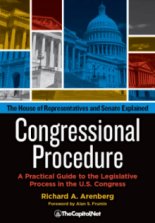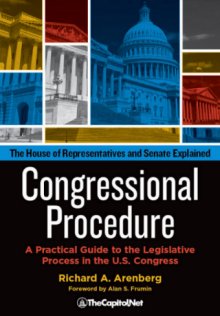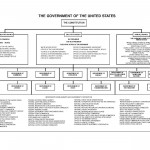Adjournment to a Day and Time Certain (CongressionalGlossary.com)
From the Congressional Glossary – Including Legislative and Budget Terms Adjournment to a Day and Time Certain photo credit: Brett Jordan Adjournment to a Day and Time Certain is adjournment under a motion or resolution that fixes the next time of meeting for one chamber or both chambers. Under the Constitution, neither chamber can adjourn … Read more







